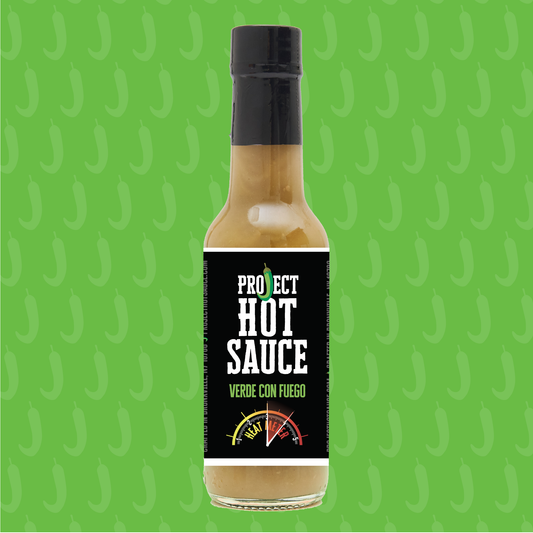The hot sauce landscape in New York City has shifted dramatically as locals increasingly choose locally-produced options over mass-market national brands. This preference stems from multiple factors that reflect broader trends in food culture, quality expectations, & community values that define modern New York dining habits.
Superior Ingredient Quality Makes the Difference
National hot sauce brands prioritize shelf stability & cost efficiency over ingredient quality, often using pepper concentrates, artificial preservatives, & standardized flavor profiles that lack character. Local NYC producers source fresh peppers directly from regional farms, creating sauces that showcase the natural complexity of different pepper varieties.
The difference becomes apparent in side-by-side tastings. Mass-produced sauces tend to taste primarily of vinegar & generic heat, while locally-made alternatives offer layered flavor profiles that complement rather than overpower food. This distinction matters to New Yorkers who appreciate culinary sophistication & expect condiments to enhance their dining experiences.
Fresh ingredient sourcing allows local producers to experiment with seasonal variations, creating limited batches that reflect the changing agricultural calendar. National brands maintain identical flavor profiles year-round, missing opportunities to showcase peak-season pepper harvests or incorporate complementary seasonal ingredients.
Processing Method Differences
Local producers often employ minimal processing techniques that preserve pepper characteristics, while industrial operations prioritize efficiency & consistency over flavor preservation. These different approaches result in products with distinctly different taste experiences & nutritional profiles.
Temperature control during processing affects flavor development & nutritional content. Small-batch producers can monitor & adjust processing conditions for optimal results, while large-scale operations must standardize procedures that may not optimize quality for every batch.
Freshness Advantages
Proximity between production & consumption means NYC hot sauces reach customers within weeks of bottling rather than months. This freshness translates into better flavor & potentially higher nutritional content compared to products that sit in distribution networks for extended periods.
Local production cycles allow producers to time their releases with optimal ingredient availability, ensuring customers receive products made from peak-quality peppers rather than whatever ingredients are available year-round.
Supporting Local Economy Resonates with Values
Purchasing locally-made hot sauces keeps money within the New York economy, supporting small businesses, local farmers, & related service providers. This economic impact matters to residents who understand how local spending strengthens their communities & creates employment opportunities for their neighbors.
Many NYC hot sauce producers operate as certified benefit corporations or prioritize sustainable business practices that align with local values around environmental responsibility & social impact. National brands typically focus solely on profit maximization, showing less concern for environmental or community impacts.
The personal connection between producers & consumers creates accountability that national brands cannot match. Local makers attend farmers markets, participate in food festivals, & engage directly with customers who provide feedback & influence product development. This relationship builds trust & loyalty while ensuring products meet local preferences.
Community Investment
Local hot sauce companies often participate in community events, sponsor local organizations, & contribute to neighborhood development initiatives that national brands rarely support. This community investment creates positive associations that extend beyond product quality.
Employment opportunities created by local producers benefit community members directly, providing jobs for neighbors & contributing to local economic stability. These employment relationships often result in higher product quality due to increased worker investment in company success.
Environmental Considerations
Reduced transportation requirements for locally-produced hot sauce decrease carbon footprints while supporting regional agriculture that maintains green space & agricultural land near urban areas. These environmental benefits matter to environmentally conscious New Yorkers.
Local producers often implement sustainable practices including waste reduction, energy efficiency, & responsible packaging that align with customer values about environmental stewardship. National brands may lack incentives to implement similar practices due to different stakeholder priorities.
Cultural Authenticity Reflects NYC Diversity
New York's hot sauce producers draw inspiration from the city's cultural diversity, creating products that reflect authentic ethnic flavor profiles rather than watered-down versions designed for mass appeal. This authenticity matters to communities seeking condiments that honor their culinary traditions.
Puerto Rican producers in the Bronx create sofrito-based hot sauces that capture traditional island flavors. Korean makers in Queens develop gochujang-inspired blends that satisfy homesick immigrants & adventurous locals alike. These authentic products provide cultural connections that mass-market brands simply cannot replicate.
The collaborative nature of NYC's food scene encourages cross-cultural experimentation, resulting in fusion hot sauces that reflect the city's melting pot character. Local producers regularly collaborate on limited releases that combine different cultural traditions, creating innovative products that celebrate New York's diversity.
Immigrant Entrepreneurship
Many NYC hot sauce producers are immigrants or first-generation Americans who bring authentic recipes & techniques from their home countries. These personal connections to traditional cuisines result in products that maintain cultural integrity while adapting to local tastes & ingredient availability.
Cultural authenticity extends to production methods, with some producers using traditional fermentation techniques, aging processes, or spice combinations that reflect generations of culinary knowledge rather than modern industrial convenience.
Neighborhood Character
Different NYC neighborhoods foster distinct hot sauce styles that reflect their demographic compositions & culinary preferences. This geographic diversity creates products that capture specific community characteristics rather than attempting to appeal to generic national markets.
Local producers often name their products after neighborhood landmarks, use local cultural references, or incorporate ingredients that reflect their specific geographic locations within the city.
Customization & Innovation Drive Product Development
Local producers can respond quickly to customer feedback & market trends, adjusting recipes or developing new products based on direct consumer input. This agility allows them to satisfy specific preferences for heat levels, flavor combinations, or dietary restrictions that national brands typically ignore.
Project Hot Sauce exemplifies this responsive approach, working directly with customers at farmers markets to understand preferences & refine recipes. This feedback loop ensures products meet local tastes while maintaining the quality standards that differentiate artisanal products from mass-market alternatives.
Small-batch production enables experimentation with unique ingredients or production methods that would be impossible at industrial scales. Local makers frequently release limited editions featuring unusual pepper varieties, barrel-aging processes, or collaborative ingredients from other local producers.
Innovation Freedom
Without corporate bureaucracy or national distribution requirements, local producers can innovate rapidly & take creative risks that might not be feasible for large companies. This freedom results in products that push culinary boundaries while satisfying adventurous local palates.
Seasonal ingredient availability drives innovation as local producers adapt their recipes based on what's available from regional farms. This constraint often sparks creativity that results in exciting flavor combinations unavailable from national brands.
Customer Co-Creation
Direct customer interaction allows local producers to involve their communities in product development through feedback sessions, tasting events, & collaborative recipe development. This participation creates stronger customer loyalty while ensuring products meet actual market demand.
Custom production services enable restaurants, caterers, & other businesses to work with local producers on proprietary recipes that meet specific needs while supporting local economic development.
Transparency & Traceability Build Consumer Confidence
NYC hot sauce producers typically provide detailed information about their ingredients, sourcing practices, & production methods, allowing consumers to make informed decisions about their purchases. This transparency contrasts sharply with national brands that often obscure their supply chains & production processes.
Many local producers offer facility tours or host production demonstrations that show customers exactly how their hot sauces are made. This openness builds trust while educating consumers about the skill & care required for artisanal food production.
Traceability extends to ingredient sourcing, with many local producers naming specific farms or regions where their peppers are grown. This level of detail helps consumers understand the agricultural practices behind their food while supporting producers who prioritize sustainable farming methods.
Production Visibility
Social media presence allows local producers to share behind-the-scenes content that demonstrates their production processes, quality control measures, & ingredient sourcing decisions. This visibility creates transparency that national brands rarely provide.
Direct communication channels enable customers to ask questions about ingredients, production methods, or company practices & receive detailed responses from actual company representatives rather than customer service scripts.
Freshness & Flavor Development
Local production cycles mean NYC hot sauce reaches consumers within weeks or months of bottling, ensuring optimal flavor & texture. National brands often sit in distribution centers for extended periods before reaching store shelves, potentially compromising quality.
Proper aging processes enhance certain hot sauce styles, but this requires careful temperature control & timing that local producers can manage more effectively than industrial operations. Small-batch aging allows for quality monitoring throughout the process, ensuring each bottle reaches its flavor potential.
The proximity between production & consumption enables local makers to educate consumers about proper storage & usage, maximizing the enjoyment customers derive from their products. This relationship extends beyond simple transactions to include culinary education & appreciation.
Quality Control
Small-batch production allows for individual attention to each batch, with producers able to adjust processing parameters based on ingredient variations or seasonal characteristics. This hands-on approach often results in superior quality compared to automated industrial processes.
Direct distribution relationships mean local producers can respond quickly to quality issues or customer feedback, maintaining product standards & customer satisfaction through personal attention rather than corporate protocols.
Local NYC hot sauce producers have earned customer loyalty by delivering superior products that reflect community values, cultural authenticity, & culinary innovation. As New Yorkers become more conscious about supporting local businesses & demanding higher quality food products, this preference for locally-made hot sauces will likely continue growing, reshaping the condiment market throughout the metropolitan area.





